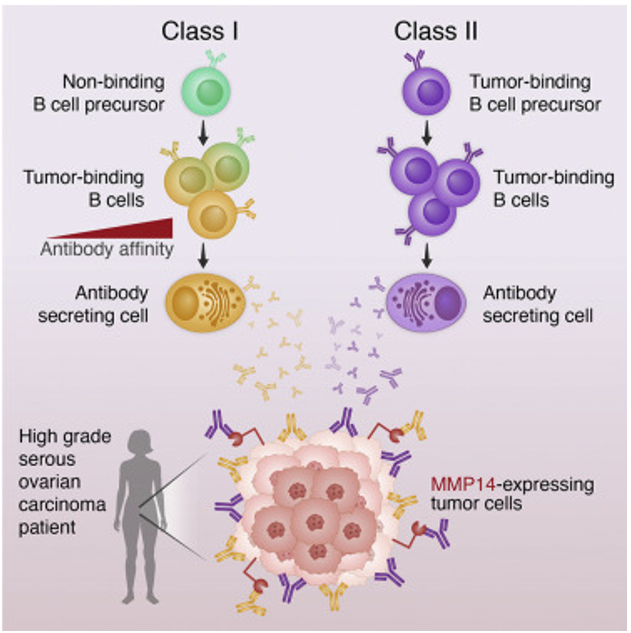MMP14 is a major antibody target on the tumor cell surface as it is highly expressed on tumor cells and plays a key role in cancer progression and metastasis. Natural occurring autoantibodies targeting MMP14 were isolated from ovarian cancer patients. These antibodies induce cell-mediated tumor killing and have potential applications both as a therapy and a diagnostic tool.
- Monoclonal antibody therapy
- Antibody-drug conjugates (ADCs)
- Theranostics
- Chimeric antigen receptor (CAR) therapy
- Prognostic marker for ovarian cancer
- Derived from human patients, reducing immunogenicity risks
- Targets MMP14, a key protein in tumor metastasis
- Multiple therapeutic formats, increasing treatment flexibility
- Demonstrated in vivo efficacy

The antibodies have been tested in preclinical studies, including in vivo ovarian cancer models, demonstrating strong tumor binding and effector functions.
Preclinical studies show strong tumor-binding and immune activation, supporting their use in cancer therapy.
Mazor RD et al., Cell 2022. doi:10.1016/j.cell.2022.02.012


